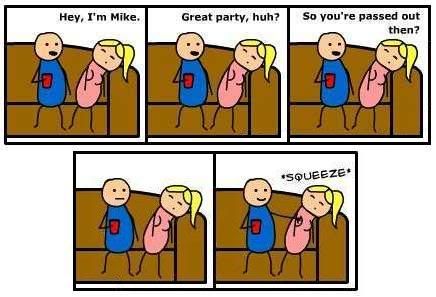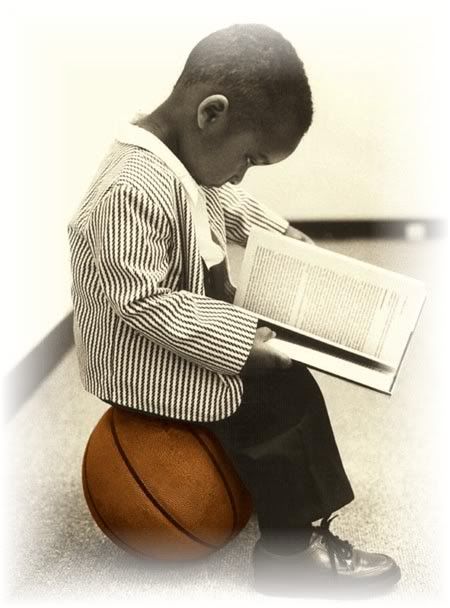 ent, they can then develop AIDS (acquired immunodeficiency syndrome) or become "full blown". Sadly, for now, HIV and AIDS are a fact of life that cannot be eliminated, and is eliminating people we love.
ent, they can then develop AIDS (acquired immunodeficiency syndrome) or become "full blown". Sadly, for now, HIV and AIDS are a fact of life that cannot be eliminated, and is eliminating people we love.Why are the youth more at risk?
Many young people have begun to or are approaching the age where they are preparing to leave home for college or planning for the future to live on their own, gaining independance and are meeting a lot of new people that will influence their decisions. Many of them are not physically, emotionally, or sexually mature in their growth to reach these new levels. College life offers more opportunities to develop sexual relationships as the students are around many like themselves who may be away from home for the first time.
HOW WILL I KNOW SOMEONE IS INFECTED?
You cannot tell by looking at someone if they are infected with HIV or not. A person can look and feel fine but still be infected with HIV. Many people who are infected are on a medical treatment to where the viral load in their immune system is undetectable; meaning there are fewer copies of the virus in the blood 
WHAT IS THE SAFEST WAY TO AVOID GETTING HIV/AIDS?
 t, you can still make the choice to abstain and wait until you know you are ready - preferably when you are in a committed, monogomous relationship like marriage.
t, you can still make the choice to abstain and wait until you know you are ready - preferably when you are in a committed, monogomous relationship like marriage.Many couples decide together to abstain which helps strengthen their relationship, build self-respect and open opportunities to really get to know each other beyond physical satisfaction. It is easier to make this decision early in the relationship before things get to a point where it becomes difficult to say no.
WHAT IF THAT DOESN'T WORK?
BUT I ALWAYS USE CONDOMS, SO I'M SAFE RIGHT?
Condoms are NOT always 100% effective and the packaging clearly tells you that. When used properly, condoms can help protect you and your partner against HIV and other STD's as well as unwanted pregnancy; however... CERTAIN STDs CAN STILL BE SPREAD BY CONTACT WITH INFECTED AREAS THAT ARE NOT COVERED BY A CONDOM!! (See Genital Herpes Transmission).
HOW DO I USE A CONDOM PROPERLY?
First, discuss condom use before you have sex with your partner and agree that you will use them with every sexual encounter properly. This will also help you avoid any scare trips to the doctor due to being allergic to certain types of condoms.
- Health officials encourage you to use a male latex condom for each seperate act of vaginal, anal or oral sex; however if you cannot use a male latex condom, there are condoms for females as well.
- Read the labels and instructions on the packaging carefully!
- Check the expiration date.
- Check the individually wrapped condom for a pocket of air inside. The condom wrapper should feel as though there is air inside, not flat.
- Use a water based lubricant for vaginal and anal sex. Never use condoms with oil based lubricants, such as petroleum jelly or with any vaginal products that may have oil. This causes the condom to be more porous, allowing semen and viruses to travel through the condom.
- If allergic to latex condom, there are also polyurethane or synthetic latex condoms. These types of condoms have not been as thoroughly tested as male latex condoms; however the CDC indicates that they're likely to provide similar protection.
I'M COOLER WHEN I'M HIGH
Using alcohol or anything that alters your sober mental state, including prescription drugs increases your risk for HIV infection (and only God knows what else!). A person's decision to say no or remain abstinent or faithful to their partner may be weakened if he re or she is using alcohol or other drugs. People with altered states of mind are more likely to forget to use condoms or may not use them properly.
re or she is using alcohol or other drugs. People with altered states of mind are more likely to forget to use condoms or may not use them properly.
HOW DO I AVOID THE TEMPTATION?
Pressure to party and engage in ccertain activities may seem like a reality in college life, single life, depressed life, etc. but it is important to protect yourself from high risk situations like gatherings centered around alcohol or other drugs. Avoid adding these two dangerous incentives to your dates as it can promote risky or violent behavior including date rape. Do not be afraid to say no and you can do so politely; however be firm. Aside from health issues, alcohol use or possession by people under the age of 21 can result in legal problems and it is important that you know the laws in your state as well as in other countries when traveling for holidays. Your schools, jobs or organizations you may be a part of might have rules about alcohol use by students or employees.
Learn to assert yourself, stand firm in your convictions of what you believe is best for you. Think ahead as sometimes certain stressors and pressures in life may make making decisions like abstaining from sex and refraining from drug use more difficult. It's easier to make these decisions when you think about consequences and decide on your limits and boundaries before getting into a situation involving alcohol, drug or sex. While it may be diffiult depending on the moment, try to always remain calm when choosing to say no and leave emotions out of your decision. Look the person in the eye and stand straight or sit up straight - try not to give nervous laughter or smiles as this may be interpreted as uncertainty. Use "I" statements instead of ridiculing the person who is choosing to be involved in high risk behavior. Say, "I have more fun when I'm not drinking", or "Drinking makes me sick", or "No thanks, I have a (test, interview, meeting) in the morning", instead of "You're a fool for drinking." As you should have your mind made up before you actually say no, stand firm and don't give in or argue your decision.
If still caught in the heat of the moment and temptation is in your face, learn to flip people's statements to where they can't respond:
But, everyone is doing it. / REPLY: I'm someone and I'm not doing it.
I thought you loved me. / REPLY: If you loved me, you wouldn't pressure me.
I'll still respect you in the morning. / REPLY: Good. I'll see you then.




 HIV positive people like that they can’t be in a relationship, that they won’t get married, have sex (yeah, seriously), or anything that someone who’s not infected with HIV can have. They are wrong and I specifically picked a word to discuss in this blog to show that someone with HIV can be with someone who does not have HIV…
HIV positive people like that they can’t be in a relationship, that they won’t get married, have sex (yeah, seriously), or anything that someone who’s not infected with HIV can have. They are wrong and I specifically picked a word to discuss in this blog to show that someone with HIV can be with someone who does not have HIV…

